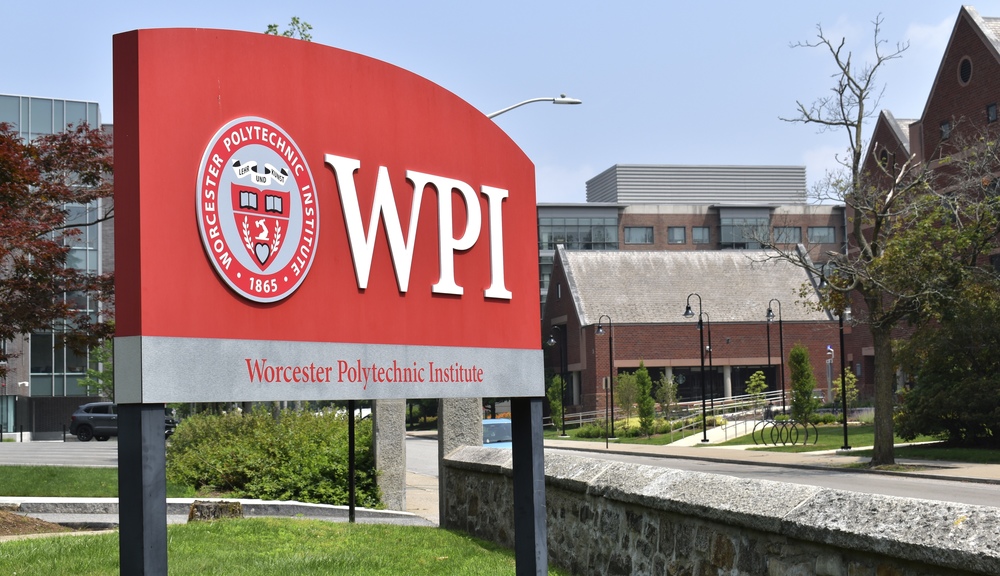WORCESTER, Mass. -- With funding from the Massachusetts Board of Higher Education (BHE), Worcester Polytechnic Institute (WPI) will host a series of summer workshops for teachers in grades 3 through 8 aimed at strengthening science education by addressing misconceptions teachers and students sometimes hold about the physical sciences. The workshops will be offered over the course of three summers, beginning this year.
The workshops will be funded by a portion of a three-year, $330,402 grant awarded this month through the BHE’s Science, Technology, Engineering and Math (STEM) Pipeline Fund to the Central Regional Pre-K to 16 Network, which includes WPI, the University of Massachusetts Medical School (the lead partner), and middle schools in Clinton, Leominster, Worcester, and other local districts.
WPI’s portion of the funding will be overseen by its Office of K-12 Outreach, which focuses on science, mathematics, and engineering education. The office offers more than 40 outreach programs that provide learning opportunities and resources for teachers and students in kindergarten through high school, including direct student experiences, professional development for teachers, and relevant, standards-based curriculum to use with students, noted K-12 outreach director Martha Cyr.
"Our aim in helping to strengthen mathematics, science, and engineering education is to improve science and math teaching, bolster technological literacy, and get more students directed toward college and careers in STEM fields," Cyr says. "All of these outcomes can have a profound effect on the regional and national economies."
The Pipeline Fund is a workforce development initiative designed to increase student interest and teacher preparation in STEM subjects. Originally created in 2003, the fund was recapitalized in 2006 with an additional $4 million as part of economic stimulus legislation. This represented the first infusion of money into the fund since it was established in 2003 with $2.5 million.
The grant to the central region network is part of a larger $1.7 million award announced by the BHE to support three-year collaborative projects in six regional pre-K to 16 Networks: Berkshire, Cape and Islands, Central, Northeast, Pioneer Valley, and Southcoast. The networks bring together K 12 schools, higher education institutions, and businesses and community organizations to address regional education and workforce needs.
"We are so pleased to receive the funding from the STEM Pipeline Fund and are looking forward to carrying out our regional plan," says Sandy Mayrand, director of the Regional Science Resource Center at the University of Massachusetts Medical School. "Central Massachusetts has a strong history of STEM stakeholders working together to ensure that the next generation is well-prepared and eager to work in the STEM careers that drive our economy."
The workshops hosted by WPI will target weaknesses in the elementary science curriculum highlighted by the results of the 2006 MCAS (Massachusetts Comprehensive Assessment System) tests and school district data. The five-day summer workshops (which will be augmented by two follow-up training days during the school year) will be developed by a team of science and education experts from higher education, professional development organizations, and the K-12 community. A total of 60 teachers from central Massachusetts schools will be enrolled each summer.
"The workshops will help teachers appreciate the pervasiveness and power of common misconceptions about science," Cyr says, "and help them dispel them by learning and practicing effective instructional strategies and deepening their own knowledge of physical science concepts."
In addition to the workshops, the grant to the Central Regional PreK-16 Network will fund a project called "Growing STEM From the Ground Up," a collaborative effort among regional K-12, higher education, and industry representatives aimed at identifying and developing additional ways to address regional STEM education and workforce needs.
"We must do everything we can to foster in students a love of math and science, and in teachers, the skills needed to inspire and teach in these important subjects," says BHE chancellor Patricia Plummer. "STEM disciplines are expected to drastically reshape the regional and global economy. Without proper training, too many of our students and residents are going to lose out on the careers of the future."
"The state funding seeks to remedy the steady erosion of students who choose to go into science, mathematics, and engineering careers in the Commonwealth," says State Representative Daniel E. Bosley (D-North Adams), co-chair of the Joint Committee on Economic Development and Emerging Technologies. "Massachusetts has always been the national leader in scientific innovation, and we must continue to encourage our children to pursue careers in STEM fields or we will lose our advantage as an international center of scientific creativity and imagination."

